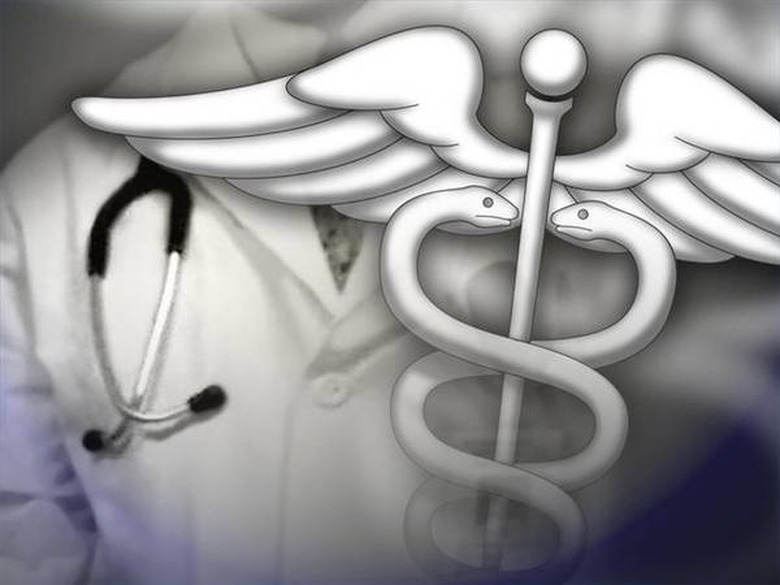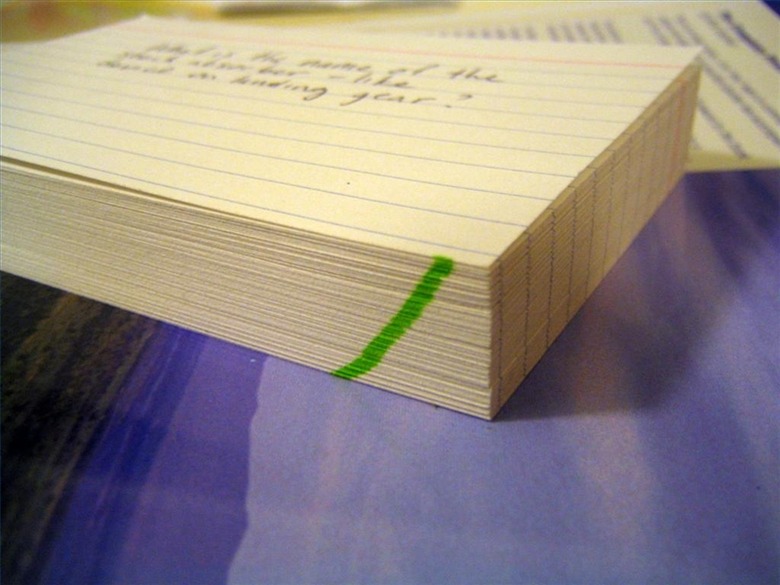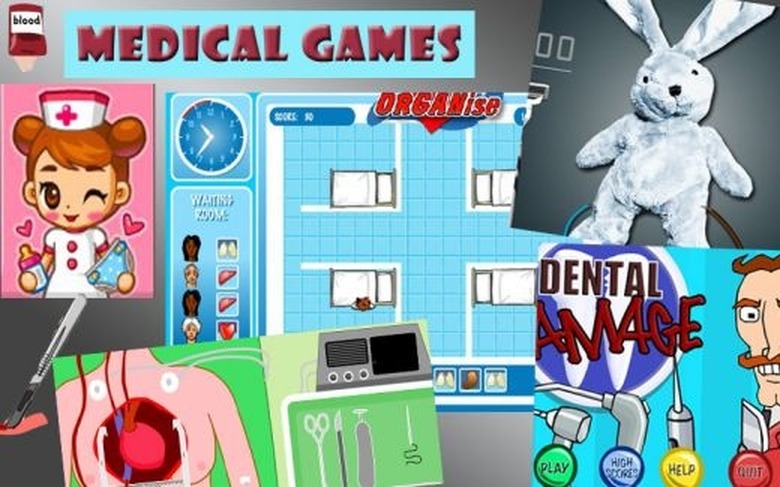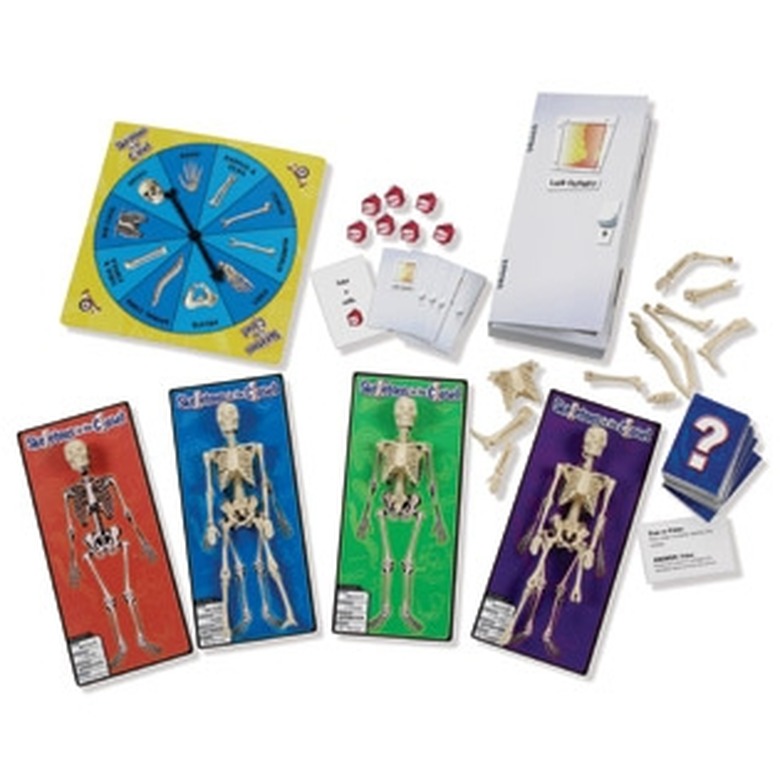Activities For Medical Terminology
Doctors, nurses and others use medical terminology to describe the human body and all of its conditions, components and processes, in a scientific manner. There are three basic structures to medical terminology: word roots, prefixes and suffixes. Learning medical technology is rarely easy, but several activities can make the process a little less painful.
Flash Cards
Flash Cards
One of the best aids to memorization is flash cards. The easiest way to make flash cards is with index cards. Any extra paper around the house will work as well; just cut into 4x4-inch squares. Be sure to purchase enough index cards or cut enough paper squares for each term. On each flash card, make different sections; for example, one section for prefixes, one for suffixes, and then the meaning for each. Or write the prefix or suffix on the front of the flash card, and the meaning on the back. For example, on the front, write "abdomin(o)-" and on the back, write "of or relating to the abdomen." Flash cards are great to use solo, or with a partner.
Online
Online
There are various sites that offer online games to learn medical terminology. Sheppardsoftware.com offers a wide variety of vocabulary learning games, as well as random quizzes, with unlimited play. If making flash cards yourself doesn't sound fun, the website medtrng.com offers flash cards. You'll also find word searches, concentration games and quizzes regarding medical terminology at this site. Many websites are free for unlimited use, while others require a fee to sign up and play.
Matching
Matching
If you are a visual person, matching is a great way to learn terms because pictures are involved. You can use index cards to make matching games. On some of the cards, place the terms, and on others, pictures that relate to the terms. These pictures can be printed from the Internet. Place the cards face down and try to match the term with its picture.
Pennhealth.com offers interactive animations, pictures and diagrams related to human anatomy and physiology, which will help aid in matching. Teacherweb.com offers a huge list of different other websites for visual learning, definitions, terminology, and other helpful links.
References
Cite This Article
MLA
Taylor, Amber. "Activities For Medical Terminology" sciencing.com, https://www.sciencing.com/activities-for-medical-terminology-12742105/. 9 September 2009.
APA
Taylor, Amber. (2009, September 9). Activities For Medical Terminology. sciencing.com. Retrieved from https://www.sciencing.com/activities-for-medical-terminology-12742105/
Chicago
Taylor, Amber. Activities For Medical Terminology last modified March 24, 2022. https://www.sciencing.com/activities-for-medical-terminology-12742105/



